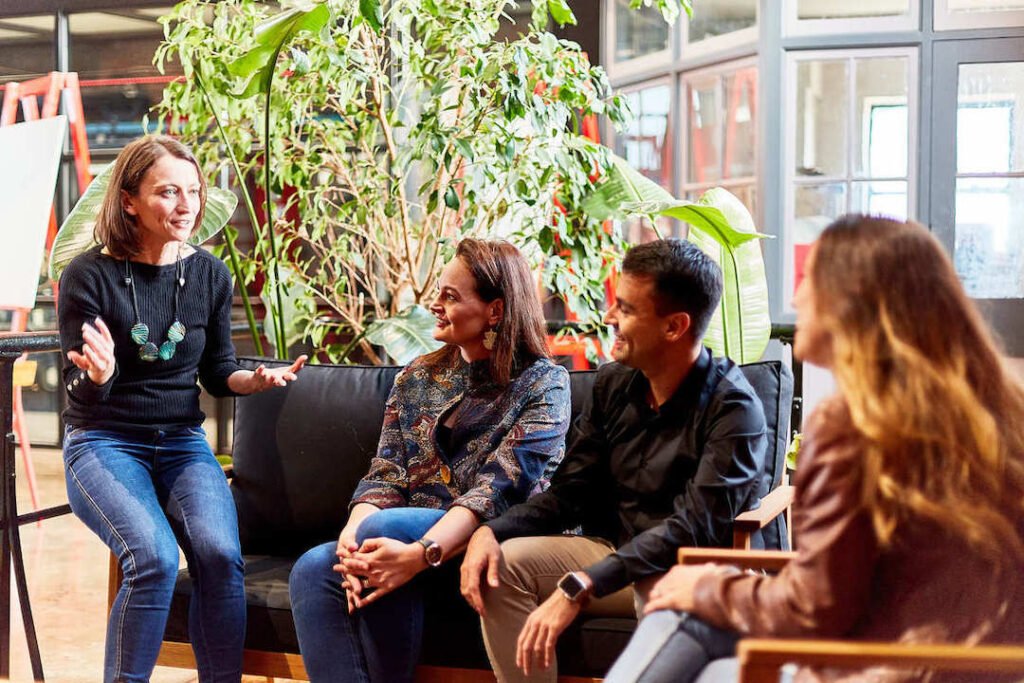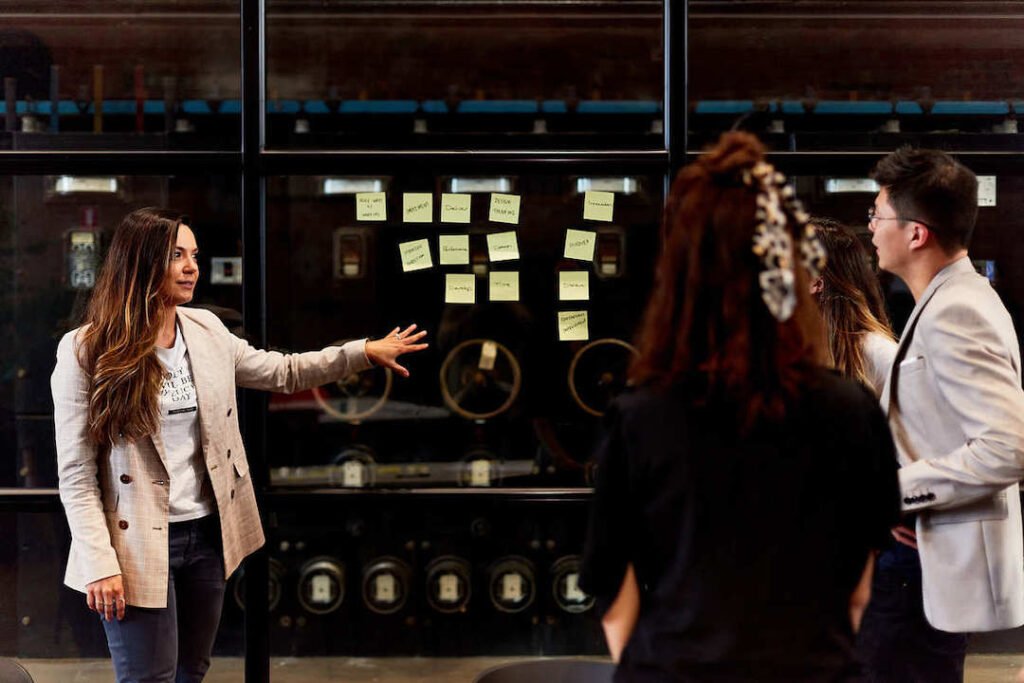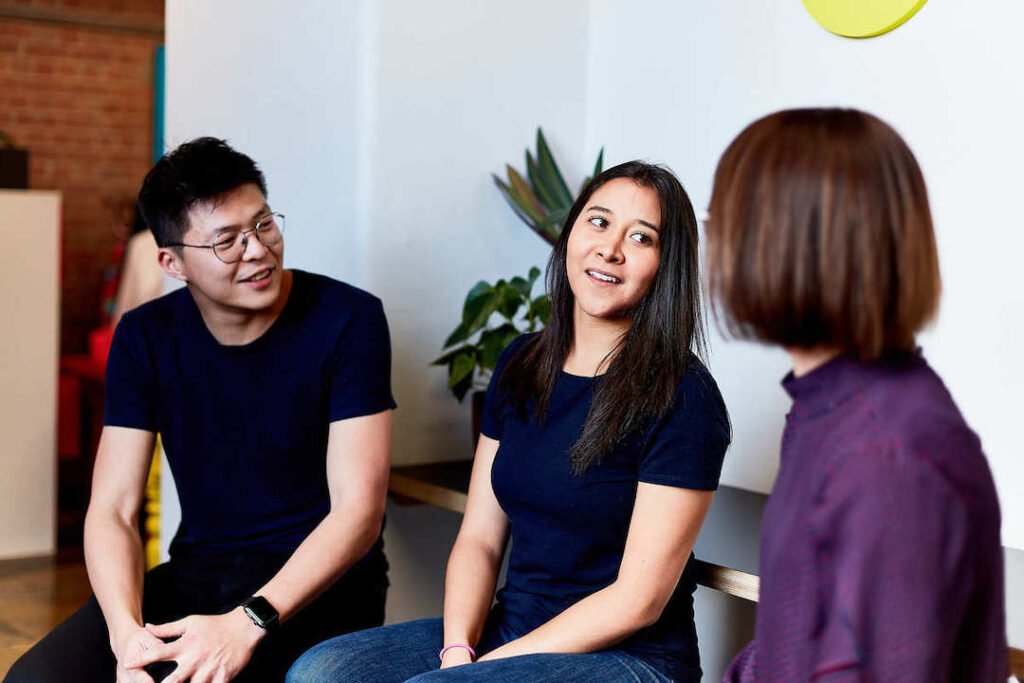Bia Affonso, Head of Impact at Neu21, outlines where we’re falling short on fostering wellness in the workplace and how we can improve.
Wellbeing is an intangible concept that can’t be measured on its own, but thanks to leading Positive Psychology researchers, wellbeing can be defined and cultivated by the presence of positive emotions, engagement, relationships, meaning, accomplishment and health in our lives.
In most traditional workplaces, wellbeing is a box ticked after fruits bowls and Employee Assistance Programs (EAP) are provided, offering employees confidential counselling services and healthy food options.
It is time to acknowledge that the wellbeing of our people goes far beyond EAP services. How do we foster positive emotions at work when we’re stripped of our autonomy? How are we meant to find meaning in life if we don’t understand how our work contributes to the organisation’s purpose and strategic goals? And how can we sleep peacefully when we’re assigned more work, and everything seems urgent?
Now imagine having to cope with the above when working remotely, juggling home schooling, a shared working space with your partner and the added pressure of managing impressions when showing up in zoom calls? I’ve seen cases where workers are exhausted or afraid of video calls, resorting to cameras off or virtual background pictures to make their home reality more ‘professional’.
How do we keep it together when lockdown is pushing some to mental breakdown, surfacing the loneliness epidemic that has been afflicting the modern world?
People are screaming for support and belonging.
According to the 2020 Women at Work report, 1 in 4 women in America are considering leaving the workforce or downshifting their careers because of COVID. A staggering 3 in 4 senior-level women are considering stepping out or reducing hours, and they say the main culprit is burnout.

The pandemic has awakened many leaders from their apathy and sleep-mode, but for many they were abruptly asked to take action without knowing how to. Some are still groggy catching up to maintain performance and provide support while their people are working from home or in the frontline. I’m not even mentioning the employees who were let go or stood down – with those, the risk of real struggle is even more heightened.
How do leaders, used to striving for infinite growth and rewarded by shareholders for doing so, navigate such a complex and challenging time? They are the byproduct of a broken system that never taught them how to focus on their people’s and their own wellbeing, especially during disruption. As W. Edwards Deming wisely said: “94% of problems in business are systems-driven and only 6% are people driven.”
We’re still feeling the hangover of Scientific Management, with outdated early 20th century practices and narratives of what people need at work. According to the Change Lab 2020 Workplace report, employees who had no workplace support were more likely to feel that their organisation and teams were just getting by or really struggling with COVID.
The reality is that leaders have now been pushed to rethink how they design their policies, practices and reward systems. The old paradigm of growth at all cost is not equating to more gains as a rule of thumb, and how we manage change in a simplistic, linear and binary good-or-bad way, doesn’t cut it anymore.

On the flip side, conversations about ways of working, people happiness and wellbeing have gained momentum, but if we don’t turn these into action we run the risk of falling asleep again and reverting to our old ways.
Speaking of action, recently the NZ accounting software company, Xero, advertised for a Global Head of Wellbeing. The role oversees the development of their wellbeing strategy as well as making it part of their DNA.
Traditionally, employees’ wellbeing has been delegated to HR practitioners who are not usually trained or incentivised to create human-centred policies, practices, processes or KPIs. Employees are often stigmatised as being problematic if they end up in the HR’s office.
We thought that we were giving our people everything they needed to feel good, but we are still stuck in a mindset of fixing complex challenges with technical solutions.
Sometimes a real conversation is more powerful than any fruit bowl or free yoga class that we don’t have time to attend. This is what I call wellbeing-lite (inspired by journalist Sarah Wilson on her use of lite when something is not the full, real version). We see organisations offer the bare minimum and hashtag #wellbeingatwork every time they run exercise classes at work.
Only time will tell whether Xero’s new role has legs, but it sure is a promising sign that a large organisation is suppporting the proven fact that wellbeing leads to increased performance. I’m crossing my fingers in the hope that this is a growing trend, and I firmly believe that organisations that want to stay ahead, should add this role to their structure, at least until wellbeing is fully embedded within their culture.
After all, people flourishing should be every employer’s responsibility, as well as a personal commitment from individuals. Shouldn’t we all have the right to thrive?

Recently, I’ve had an a-ha moment about what it is to practice wellbeing-full at work, not the lite version of yoga sessions, fruit bowls and EAP services.
Wellbeing-full makes wellbeing a core strategic focus, not a perk or an afterthought. It is when our organisation helps people navigate adaptive challenges with a 21st century mindset. It’s about trust, adaptability and kindness. By intentionally designing our organisations using these principles people are more likely to do well despite the rampant challenges we face today. It’s a journey of discovery, experimentation and development.
We need this now more than ever before, so that individuals function well, feel good and are better equipped to not only perform, but also create a wellbeing economy. An economy where both people and planet flourish.
What would happen to people’s relationships with themselves, their families and the natural world if they had a wellbeing-full work experience? We spend on average 260 days a year working, so imagine the ripple effect on organisational performance and how people show up in life.
As the Wellbeing Economy Alliance describes it: “[…] a wellbeing economy is designed with a different purpose: it starts with the idea that the economy should serve people and communities, first and foremost.”
Wellbeing used to be a perk and box-ticking exercise for legacy organisations, but is now a vital part of what makes us thriving agents of our future. During crisis, humans are programmed to connect, so let’s use this time to double down on our wellbeing impact, to not only imagine a new reality but to create a sustainable future for organisations and humanity.
Let’s go wellbeing-full. All in, together.
Bia Affonso is the Head of Impact at Neu21, transformational change specialists.

